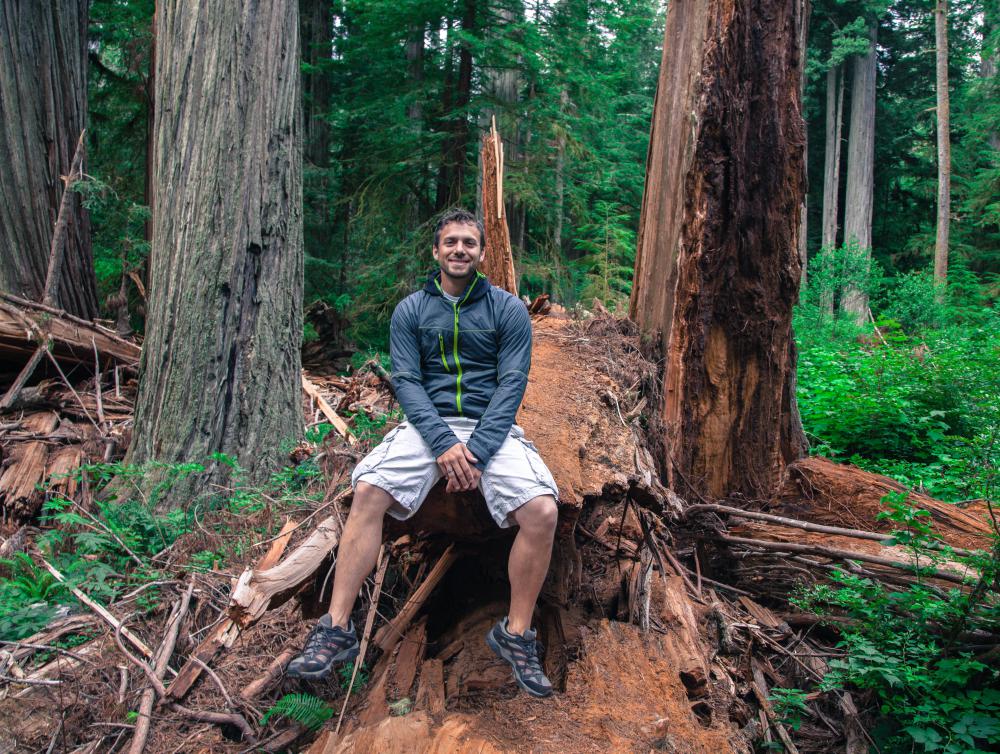At AllThingsNature, we're committed to delivering accurate, trustworthy information. Our expert-authored content is rigorously fact-checked and sourced from credible authorities. Discover how we uphold the highest standards in providing you with reliable knowledge.
What is an Ecological Footprint?
The term “ecological footprint” was developed by environmentalists to describe the impact that an individual has on his or her environment. An ecological footprint takes a number of things into account such as car ownership, amount of garbage generated, how often the individual walks or rides a bicycle, and other things designed to gauge land and water usage. The concept of an ecological footprint was developed in response to concerns that people were not living sustainably, and that existing rates of consumption, especially in the First World, would result in resource deficiencies.
Growing concerns about global population pressure have led to initiatives which are designed to make human life more sustainable. According to environmental organizations, there are 4.5 useful acres on Earth for each person. Most people in the West have an ecological footprint that is far larger, meaning that there would need to be multiple planets to sustain a population consuming at that rate. People in impoverished nations have a much smaller ecological footprint, although growing populations and promotion of Western styles of life may lead to an increase.

The idea of an ecological footprint was conceived in 1992 by William Rees, a Canadian ecologist. Rees believed that finding a rough yardstick to measure consumption would help to illustrate the problems caused by population pressure and increases in consumption. Using data gathered all over the world, he showed that present rates of consumption and increase could result in a serious global problem in an alarmingly short amount of time. While the ecological footprint does have some inaccuracies, it is a solid starting point for a discussion about how humans use the environment.

Rees also showed that small changes could markedly reduce an ecological footprint, and that if Western nations worked together, they could greatly reduce the amount of resources they were consuming. Individual citizens could make a difference just as corporations and governments could, especially if they were shown concrete ways in which changes could be made. Some changes require drastic lifestyle alterations, while others are more simple and practical.

Ecological footprints are used as educational tools all over the world to show people how they interact with the environment around them. Simple online calculators which will show consumers their ecological footprints can be found at a number of sites, and are an interesting way to evaluate a lifestyle. In addition to providing a total ecological footprint, most sites show ways in which people can reduce their ecological footprints, based on the lifestyles they lead.
Frequently Asked Questions
What exactly is an ecological footprint?
An ecological footprint measures the environmental impact of an individual, community, or organization in terms of the amount of land and water area required to produce the resources they consume and to assimilate the waste they generate. It's a sustainability metric that reflects how much of the Earth's biocapacity is used by human activities.
How is the ecological footprint calculated?
The ecological footprint is calculated by considering multiple factors, including carbon emissions, forest products consumed, cropland and grazing land used for food, and built-up land. These components are translated into a standardized measure of global hectares (gha), which allows for comparisons across different regions and populations.
Why is the ecological footprint important?
The ecological footprint is important because it provides a tangible way to understand the impact of our consumption on the planet. It helps to identify unsustainable practices and encourages the adoption of more sustainable lifestyles and policies. By tracking ecological footprints over time, we can gauge progress towards reducing human demands on Earth's ecosystems.
What can individuals do to reduce their ecological footprint?
Individuals can reduce their ecological footprint by adopting lifestyle changes such as eating less meat, using public transportation, reducing energy consumption, recycling, and supporting sustainable products and services. Every small change contributes to a larger collective effort to live within the means of our planet's resources.
How does the ecological footprint differ from the carbon footprint?
While the ecological footprint encompasses a broad range of human demands on the environment, the carbon footprint is a more specific measure focusing solely on greenhouse gas emissions. The carbon footprint is a significant component of the ecological footprint, reflecting the impact of fossil fuel use on climate change.
Can a country have an ecological footprint larger than its actual size?
Yes, a country can have an ecological footprint larger than its geographical area. This occurs when the population's consumption levels require more resources and waste assimilation than the country's ecosystems can provide. Such countries rely on the biocapacity of other regions to meet their excess demands, often leading to ecological deficits.
AS FEATURED ON:
AS FEATURED ON:













Discussion Comments
I just took an on-line ecological footprint calculator and my results were extremely high, meaning extremely horrible.
One suggestion the ecological website suggested was to cut my animal consumption in half.
They also suggested that I should buy less packed products and more 100 percent post-consumer recycled content.
Another way to reduce my ecological footprint is to ride public transportation more and carpool more.
An easy thing I need to start doing to help our environment is to recycle more. If I see trash on the side of the road I should pick it up and either recycle it or through it away.
I also need to start spending more money on fresh produce, and less on pre-packaged freezer items.
I need to stop using so much electricity, water, and gas.
They said if everyone used/wasted as much energy as me, we would need 4.3 earths to supply adequate resources!
I pledge to use less of our planet's energy starting today! I will try not to waste too much energy and resources anymore. I hope to get my ecological footprint very small as soon as possible.
@Monika - You would be surprised at how many people don't recycle. You're not the only one! To be fair, not every community makes it easy for people to recycle so I can see why people don't do it. Many people just aren't informed or don't concern themselves with the environment.
I think for our country to truly reduce our ecological footprint, both individual, communities, and businesses need to put forth an effort. One small thing that makes a big difference is curbside recycling. If people can put their recycling out the same way they do the trash, they are more likely to do it.
Also, if big businesses make small changes to their practices, it can result in a big reduction of their footprint. This is worthwhile environmentally, but it also makes the businesses look good to consumers!
I used an online calculator ecological footprint calculator to calculate my footprint awhile back and I was flabbergasted! My footprint was extremely high.
After that, I made some small changes to my lifestyle that reduced my ecological footprint. I started recycling (I know, I should have already been doing that) and shopping for more things locally. I also started consolidating my errands into one trip to save gas and walking everywhere I could. I know I'm only one person, but I like to think all these things make a little bit of a difference in the world!
Post your comments